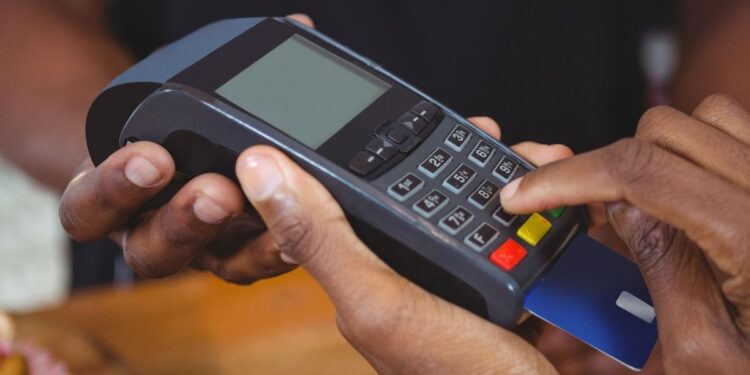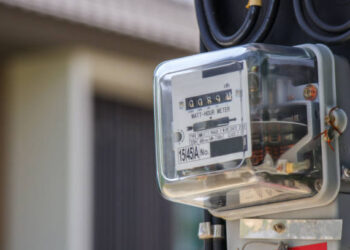Point of Sale (PoS) operators have raised an alarm that the Central Bank of Nigeria’s (CBN) new policy on agent banking could force many small fintech companies out of business and create monopolies.
The operators, under the Association of Mobile Money and Bank Agents in Nigeria (AMMBAN), said the rule, which mandates PoS agents to work exclusively with one financial institution or super-agent, will distort competition and expose thousands of small operators to losses.
They argued that by restricting agents from offering multiple services across platforms such as PalmPay, OPay, and Moniepoint, among others, the CBN risks weakening one of Nigeria’s most vibrant informal business sectors that employs millions and drives cashless transactions across the country.
Monopoly fears
Speaking with Nairametrics, the National President of the Association of Mobile Money and Bank Agents in Nigeria (AMMBAN), Mr. Fasasi Sharafadeen, said the new rules, which require agents to operate exclusively under a single financial institution or super-agent, will have far-reaching consequences on the over 1.9 million PoS agents across the country.
He warned that the policy could create monopolies in the market, giving larger fintechs an unfair advantage over smaller players.
“Out of about 200 service providers in Nigeria today, only five control nearly 70% of the agent market. Making operations exclusive will further concentrate power in their hands,” he said.
He added that the shared agent model had allowed smaller fintechs to grow and compete, as agents could serve customers using multiple platforms.
“That is the uniqueness of the PoS business and why over 80% of Nigerians are no longer going to the banks. They are visiting agent locations because they are sure that if Opay service is down, PalmPay will not, if PalmPay is down, Moniepoint will not,” he said.
- According to him, many small fintechs are surviving today because they can share agents, adding that many of them would die if exclusivity is enforced because the agents would have to drop their terminals and stick to the bigger players.
- He also argued that the exclusivity requirement would tie agents to single service providers, leaving them vulnerable to network downtimes and poor service delivery.
Another top player in the PoS ecosystem, Mr. Chigozie Anayo, echoed similar concerns, saying the new rules could lead to massive divestment and job losses.
“If agents are forced to pick one principal, most fintechs will struggle to retain their current agent base. Some may even exit the market,” he said.
Operational restrictions may shrink PoS business
Beyond exclusivity, the policy also introduces stricter branding and operational requirements. Agents must now operate from clearly branded kiosks tied to their chosen financial institution, and are discouraged from running multiple businesses at the same location
- Sharafadeen described this as counterproductive, noting that many PoS businesses cannot survive with such restrictions.
- According to him, many of the agents are operating on loans and have daily commitments of repayment, which requires them to add other businesses to make ends meet.
“Many agents combine PoS services with petty trading to survive. Telling them to only do PoS transactions is like asking them to abandon their source of livelihood,” he argued.
He further questioned the CBN’s approach to policymaking, suggesting that it was based on theoretical assumptions rather than practical realities.
“Many of those making these policies have never operated in the field. You can’t regulate an informal sector effectively from an office desk,” he said.
From geo-tagging to business restriction
The latest policy shift follows an earlier directive by the CBN mandating geo-tagging of all PoS terminals in the country, a move many see as a limitation to the operations of PoS businesses.
In the directive released earlier in September, the CBN mandated the use of ISO 20022 messaging for payments and required devices to support geolocation and geofencing, limiting operational radius to ~10 metres from registered addresses. Terminals that failed the compliance checks scheduled from October 20, 2025, would be deactivated.
- Nairametrics earlier reported that PoS terminal issuers in Nigeria, mostly fintechs, are bracing for possible service disruptions and revenue losses as the CBN’s earlier October 31 deadline for the mandatory geo-tagging of all PoS terminals approaches.
- With over 8.3 million registered PoS terminals in the country and 5.9 million already deployed as of March 2025, the scale of the exercise is massive.
- However, the deadline for the enforcement of this rule has been extended to April 1, 2026, giving industry players more lead time to comply.
Other provisions of the new CBN guidelines
In a circular (PSP/DIR/CON/CWO/001/049) released October 6, 2025, and signed by Musa I. Jimoh, Director of Payments System Policy, the CBN introduced fresh compliance measures to reflect the growing sophistication of the PoS ecosystem and Nigeria’s push for deeper financial inclusion.
Under the new framework, all agent banking transactions must be conducted through a dedicated account or wallet maintained by the principal financial institution to ensure transparency and better oversight.
- The CBN warned that any agent found using non-designated accounts for operations would be in violation of the regulation and would face sanctions.
- Agents involved in misconduct or fraud will be blacklisted or have their agreements terminated.
- The framework further limits individual customer transactions to N100,000 daily, while agent devices must be geo-fenced to prevent unauthorised mobile use.
- The CBN said the implementation of the new agent location and exclusivity rules would begin on April 1, 2026.

















